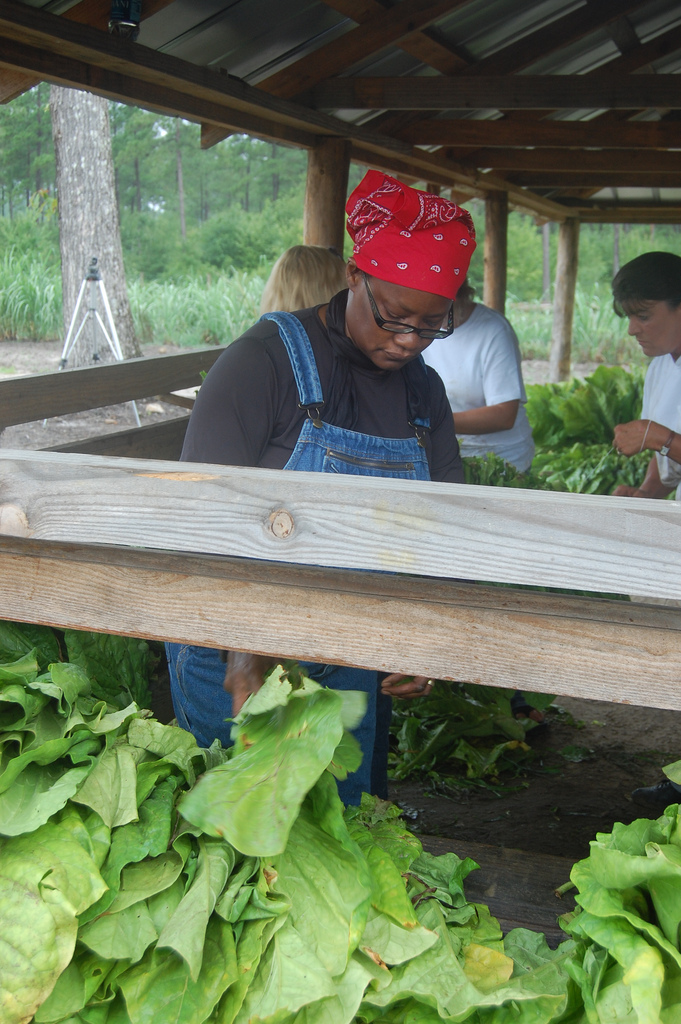Heritage tourism is designed to attract and accommodate visitors to an area to showcase the unique aspects of its history, landscape, natural resources, and culture. Heritage Tourism may also be referred to as Cultural Heritage Tourism. Agri-tourism, often considered a sub-sect of heritage tourism, refers to visiting a working farm, ranch, or other type of agribusiness to enjoy, be educated, or otherwise be involved in agricultural activities (e.g., farm tours, overnight stays, self-harvesting of produce).
Why is this important to your community?
Tourism is one of the target industries identified as part of the CONNECT region’s Comprehensive Economic Development Strategies. Relevant to both North and South Carolina counties, heritage tourism represents a niche segment of the tourism industry that seeks to diversify and strengthen the economy, while protecting historic and cultural resources. Of particular interest for our local economy is that heritage tourism, compared to tourism generally, generates more dollars per person on average spent in a community. Appalachian State University looked at North Carolina tourists’ patterns and found that cultural tourism (the largest growth segment of the tourism industry in North Carolina) visitors spend nearly twice as much as the average general visitor in the state. In the CONNECT region, preserving our past, highlighting community culture and character, and promoting our local farms can also mean economic growth for our communities and region.
Where is it appropriate to use?
What priorities does it address?
What other tools are related?
How does it work?
Heritage tourism is a strategy designed to make historic preservation economically viable by using historic structures and landscapes to attract tourism and support the local economy. Studies have found that heritage travelers tend to stay longer in a place and spend more tourism dollars than average travelers. The National Trust for Historic Preservation has developed five guiding principles for successful and long-term development of a heritage tourism program. They include collaboration with partners, building a program that is tailored to your local needs, making sites come alive, focusing on quality and authenticity, and preserving and protecting cultural resources. The National Trust toolkit includes worksheets that will help you develop a locally tailored program.
Resources
- National Trust for Historic Preservation – Heritage Tourism Toolkit
- Cultural Heritage Tourism
- The Artful Traveler: Cultural Tourism in North Carolina
- Heritage Tourism Handbook: A How-To Guide for Georgia
- Agricultural Marketing Resource Center, Checklists and Resources
- Local & Sustainable Food and Farming in the Palmetto State: A Progress Report
Ready to get started?
Using the Tool
- The National Trust provides a guide for creating a local Heritage Tourism program. The guide describes the process in four steps and includes worksheets and sample actions to help the community tailor a program. Review the National Trust resources and consider a process to:
- Assess the potential of the area by evaluating assets (attraction, visitor services, organizational capabilities, protection, and marketing).
- Build local capacity and support (local business leaders, arts, tourism, and cultural organizations, service organizations).
- Develop an action plan to design and prepare tourism materials (e.g., signs, brochures, maps, videos, guides, exhibits). Include considerations for protection and management of resources in the future.
- Plan for marketing using existing or new resources (e.g., public relations, advertising, graphic materials, and promotional materials).
- Specific resources and ideas for marketing agri-tourism are available from North Carolina’s Department of Agriculture http://www.ncagr.gov/NCproducts/CatSubDirectory.asp?CatNum=1011 and South Carolina’s Department of Agriculture http://agriculture.sc.gov/divisions/agency-services/agritourism/.
- Determine a funding strategy for your program. Local funding may include fundraising drives, membership dues, house or artist studio tour, and special events. State funding and technical assistance may be available through the NC Division of Tourism, Film, & Sports Development or the South Carolina Department of Parks, Recreation and Tourism. The SC Destination Specific Tourism Marketing Grant Program offers grants with a minimum of $250,000 to assist communities with marketing programs and marketing / PR campaigns. South Carolina’s Department of Agriculture, in partnership with the Department of Transportation has a program to assist communities with tourism / agri-tourism signage placed in the highway ROW. Federal funding may be available through National Trust resources and the National Scenic Byways Program.
- Work with local partners- particularly economic development agencies and tourism organizations- to develop promotional and marketing events and materials. Assign responsibility for website maintenance, ongoing events and planning, updates, and coordination with local businesses.
- Design and complete regular visitor surveys and track visitor spending and entertainment through your local or regional tourism organization.
Partners
- Airports
- Businesses / Business Associations
- Colleges and Universities
- Departments of Education / School Districts
- Economic Development Organizations
Where has it worked?
ChristmasVille - Rock Hill and York County, SC
 Image Source: Fort Mill SC Living.
Image Source: Fort Mill SC Living.
Contact
Downtown Development Manager, City of Rock Hill
cmurphy@cityofrockhill.comAbout the Program
The Arts Council of Rock Hill and York County hosts events a series of annual events that unite tourism, economic development, downtown revitalization, and the arts. ChristmasVille is a popular festival held in Rockhill every December that attracts in and out of state cultural tourism, showcases the local arts, and generates tourism dollars for retail and restaurant owners. The festival exhibits the art of the late Vernon Grant, a well-known illustrator and children’s artist who lived and worked in Rock Hill.
Why it works
The impetus for ChristmasVille was related to downtown redevelopment and the need to attract people in the evenings to the community, generating more people on the streets and activity. The festival, which is built around Grant’s art, became part of the overall brand for the city and “Old Town” district and focuses on celebrating the art and cultural legacy of the city. ChristmasVille has expanded over the years to include something for all ages and interests occurring over a 12-day period. Its success depends on partnerships throughout the community and data gathered from past events show an increase in sales for businesses and associated spin-off benefits from out of town visitors.
http://www.christmasvillerockhill.com/
http://www.culturalheritagetourism.org/successStories/RockHillFullStory.htm
Pee Dee Agri-Tourism Passport - Pee Dee, SC
About the Program
The Pee Dee region in South Carolina maintains an agricultural heritage that includes peaches, timber, cotton, soybeans, tobacco, and peanuts. The online “Agri-Tourism Passport” is a collaborative initiative of Clemson University Cooperative Extension and funded through USDA Rural Development grants. The tool offers visitors an interactive map where they can locate and find information about agri-toursim sites throughout the region. It allows potential visitors to locate agricultural businesses by county or type of agricultural product.
Why it works
The online tool is easy to use and lets users quickly find information about u-pick sites, farm stands, lodging, and other related businesses. Its searchable directory provides an all-in-one stop shop for finding and promoting agri-tourism activity. The website incorporates Google Maps and provides detailed information broken down into farmers markets, business information, and agri-tourism programs and facilities. One of the strengths of the site is that it promotes businesses on an individual basis, as well as creating a collective identify and online presence for the region.
http://peedee.foodmarketmaker.com/
Earl Scruggs Center and Don Gibson Theater - Shelby, NC
 Image Source: The North Carolina Humanities Council.
Image Source: The North Carolina Humanities Council.
Contact
Walt Scharer, Director of Planning
704-484-6829
walt.scharer@cityofshelby.comAbout the Program
In the mountains and foothills of North Carolina, traditional music is part of the fabric of community life. The Blue Ridge Music Trails of North Carolina is an initiative established to celebrate these roots, connecting communities with this common thread to promote tourism, economic development, and a thriving music community. The Trails program is led by the North Carolina Arts Council, a division of the North Carolina Department of Cultural Resources, and the Blue Ridge National Heritage Area Partnership. Today, numerous partners across Western North Carolina—arts councils, tourism agencies, music venues, event organizers, musicians, and dancers—are participating in the effort.
In Shelby, North Carolina, located in Cleveland County, two landmarks on the Music Trails—the Don Gibson Theater and the Earl Scruggs Center—have led to a renaissance of the community’s downtown and encourage tourists to visit from far destinations. The Don Gibson Theater, an Art Deco gem originally built in 1939 that was shuttered for thirty years, was recently reopened as an intimate concert venue, named after the hometown country music hero. Just a few blocks away, the Earl Scruggs Center celebrates the legendary banjo player, who was raised in the region, and the musical heritage of the region. The Center is located inside the historic County courthouse at the center of town, and has become the cultural heart of Shelby. It hosts events centered on musical heritage and is available for booking, and attracts visitors from throughout the region.
Why it works
The success of Downtown Shelby’s revitalization was made possible through a public-private partnership with the City and Destination Cleveland County, Inc. (DCC), a non-profit promoting economic development. DCC fundraised with individuals and local businesses in order to qualify for a $500,000 challenge grant from the City of Shelby, received a $400,000 economic development grant from the N.C. Rural Economic Development Center, and secured construction financing from five local banks in order to finance the $5.1 million project. The DCC then furthered its efforts, focusing on the opening of the Earl Scruggs Theater in another historic location—the newly renovated Courthouse. In just over 5 years, Shelby was able to save two historic buildings, both which had faced demolition, into internationally-recognized landmarks. With the success of these two projects, additional developments have aided in the rebirth of Shelby’s central downtown, including new restaurants, shops, and increased revenues for the city and community pride. The projects demonstrated the success of a public-private partnership to promote economic development through heritage tourism.
- Businesses / Business Associations



